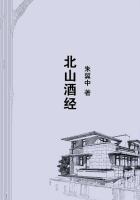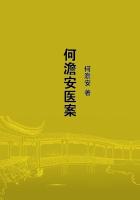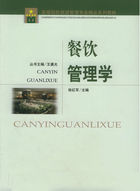If the right of increase could be subjected to the laws of reason and justice, it would be reduced to an indemnity or reward whose MAXIMUM never could exceed, for a single laborer, a certain fraction of that which he is capable of producing.This we have just shown.But why should the right of increase--let us not fear to call it by its right name, the right of robbery--be governed by reason, with which it has nothing in common? The proprietor is not content with the increase allotted him by good sense and the nature of things: he demands ten times, a hundred times, a thousand times, a million times as much.By his own labor, his property would yield him a product equal only to one;and he demands of society, no longer a right proportional to his productive capacity, but a per capita tax.He taxes his fellows in proportion to their strength, their number, and their industry.A son is born to a farmer."Good!" says the proprietor; "one more chance for increase!" By what process has farm-rent been thus changed into a poll-tax? Why have our jurists and our theologians failed, with all their shrewdness, to check the extension of the right of increase?
The proprietor, having estimated from his own productive capacity the number of laborers which his property will accommodate, divides it into as many portions, and says: "Each one shall yield me revenue." To increase his income, he has only to divide his property.Instead of reckoning the interest due him on his labor, he reckons it on his capital; and, by this substitution, the same property, which in the hands of its owner is capable of yielding only one, is worth to him ten, a hundred, a thousand, a million.Consequently, he has only to hold himself in readiness to register the names of the laborers who apply to him--his task consists in drafting leases and receipts.
Not satisfied with the lightness of his duties, the proprietor does not intend to bear even the deficit resulting from his idleness; he throws it upon the shoulders of the producer, of whom he always demands the same reward.When the farm-rent of a piece of land is once raised to its highest point, the proprietor never lowers it; high prices, the scarcity of labor, the disadvantages of the season, even pestilence itself, have no effect upon him--why should he suffer from hard times when he does not labor?
Here commences a new series of phenomena.
Say--who reasons with marvellous clearness whenever he assails taxation, but who is blind to the fact that the proprietor, as well as the tax-gatherer, steals from the tenant, and in the same manner--says in his second letter to Malthus:--"If the collector of taxes and those who employ him consume one-sixth of the products, they thereby compel the producers to feed, clothe, and support themselves on five-sixths of what they produce.They admit this, but say at the same time that it is possible for each one to live on five-sixths of what he produces.
I admit that, if they insist upon it; but I ask if they believe that the producer would live as well, in case they demanded of him, instead of one-sixth, two-sixths, or one-third, of their products? No; but he would still live.Then I ask whether he would still live, in case they should rob him of two-thirds,...then three-quarters? But I hear no reply."If the master of the French economists had been less blinded by his proprietary prejudices, he would have seen that farm-rent has precisely the same effect.
Take a family of peasants composed of six persons,--father, mother, and four children,--living in the country, and cultivating a small piece of ground.Let us suppose that by hard labor they manage, as the saying is, to make both ends meet;that, having lodged, warmed, clothed, and fed themselves, they are clear of debt, but have laid up nothing.Taking the years together, they contrive to live.If the year is prosperous, the father drinks a little more wine, the daughters buy themselves a dress, the sons a hat; they eat a little cheese, and, occasionally, some meat.I say that these people are on the road to wreck and ruin.
For, by the third corollary of our axiom, they owe to themselves the interest on their own capital.Estimating this capital at only eight thousand francs at two and a half per cent., there is an annual interest of two hundred francs to be paid.If, then, these two hundred francs, instead of being subtracted from the gross product to be saved and capitalized, are consumed, there is an annual deficit of two hundred francs in the family assets; so that at the end of forty years these good people, without suspecting it, will have eaten up their property and become bankrupt!
This result seems ridiculous--it is a sad reality.
The conscription comes.What is the conscription? An act of property exercised over families by the government without warning--a robbery of men and money.The peasants do not like to part with their sons,--in that I do not think them wrong.It is hard for a young man of twenty to gain any thing by life in the barracks; unless he is depraved, he detests it.You can generally judge of a soldier's morality by his hatred of his uniform.Unfortunate wretches or worthless scamps,--such is the make-up of the French army.This ought not to be the case,--but so it is.Question a hundred thousand men, and not one will contradict my assertion.
Our peasant, in redeeming his two conscripted sons, expends four thousand francs, which he borrows for that purpose; the interest on this, at five per cent., is two hundred francs;--a sum equal to that referred to above.If, up to this time, the production of the family, constantly balanced by its consumption, has been one thousand two hundred francs, or two hundred francs per persons--in order to pay this interest, either the six laborers must produce as much as seven, or must consume as little as five.
Curtail consumption they cannot--how can they curtail necessity?














